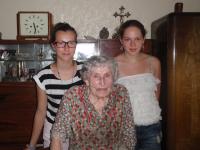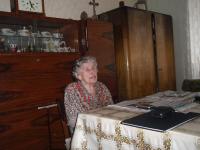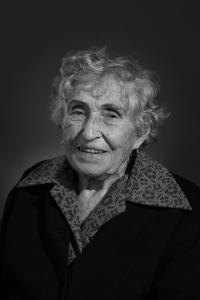I know that they meant it well, but they were giving the liberated prisoners greasy meals and many of them have died as a result

Stáhnout obrázek
Antonie Málková was born March 9, 1923 in Křečovice. She had six siblings and all of them were used to helping at their parents‘ farm since they were little children. Before the outbreak of WWII, a training ground for the SS was built in the place where they lived and the family thus had to leave. Her parents and the younger children moved to her mother‘s sister to Český Brod. Two of her siblings were sent for conscripted labour. Thanks to her friend, Antonie found work in Prague-Nusle. During the war she began studying a course for nurses, which was organized by the Borromeo sisters under the Charita organization. At the end of the war she experienced the bombing of Prague and the Prague Uprising. She volunteered to go to help to Terezín, where she cared for sick liberated prisoners and wounded soldiers. After the war she worked first in an orphanage and then in an institute for mentally handicapped children. Later she began to do qualified work as a nurse in a surgery department. She subsequently returned to working with handicapped children again and she spent the last twenty years of her career in the hospital Na Slupi in Prague. When she was forty years old, she began with further studies and she graduated from a four-year school of nursing. She has experienced problems at work due to her faith, but she was fortunate to have understanding superiors.


